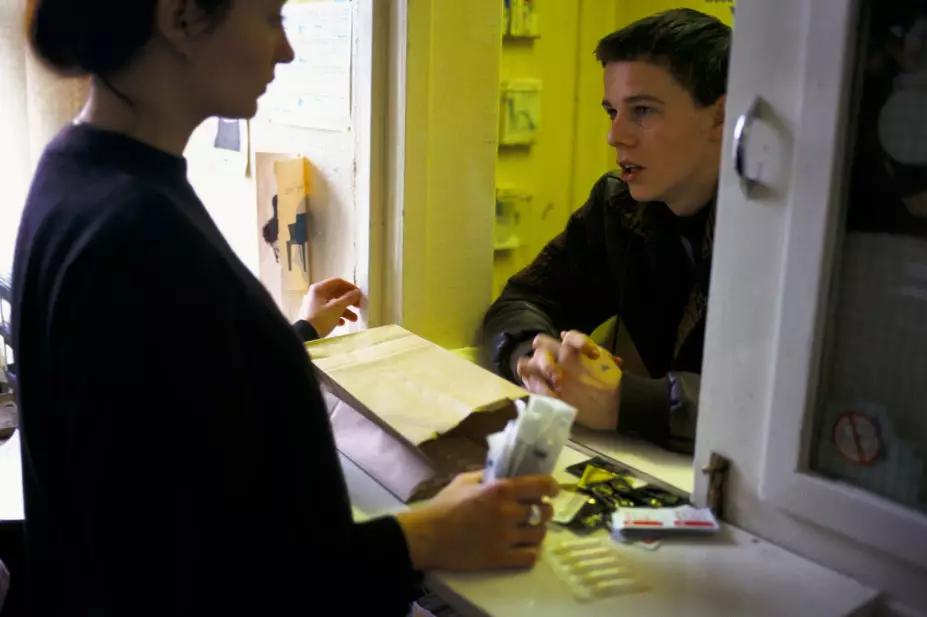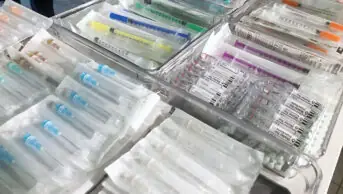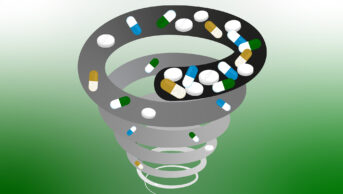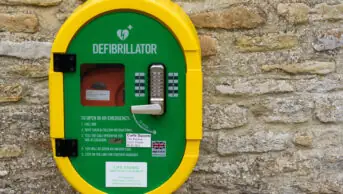
Roger Hutchings / Alamy Stock Photo
When I worked as a pharmacist in Bristol in the late 1990s, a young woman used to come into the pharmacy every day as part of her opioid dependency treatment plan, which included her taking methadone under the supervision of pharmacy staff such as myself. She stood out, not just because of her willingness to talk about her drug use and the reasons behind why she started using drugs, but also because she brought her pet rat into the pharmacy.
Not everyone was keen on this particular addition but through Nibbles* I got to know Lena* well, and she opened up to me about her life, her trauma and her drug use. When Lena was having a bad day she would leave Nibbles at home, and that was my cue to check in with her.
At the time, I knew very little about the many reasons people turn to opioids to ease suffering. Drug users are often given the worst possible start in life, including neglect and abuse. Trauma often plays a part in opioid and other substance use, as does poverty, homelessness and undiagnosed mental health conditions. Lena, who has sadly since passed away, opened my eyes to this, which has led me to where I am today.
I wanted to explore how pharmacies can impact the lives of people living with substance dependency for the better. To my surprise, this was rarely discussed in professional settings with nearly with nearly no guidance or literature published on the topic. With this in mind, in 2002, I decided to focus my PhD research on how pharmacies support people who use drugs through the provision of services, such as supervised consumption and needle exchange.
Having undertaken structured interviews with service users as part of my research, one comment stood out in particular: “[Pharmacy staff] should have a bit more understanding about what methadone is and why a person has gone down that path … [my pharmacist] doesn’t really understand why a person is getting methadone — yes it’s for heroin use, but it goes far deeper and I think if they were to know a little more about that, you know, why this person is getting methadone.”
Fast forward several years, I am fortunate enough to work in a role that allows me to put into practice much of what I learnt during my PhD. As director of pharmacy at With You, a drugs, alcohol and mental health charity, I lead a team dedicated to supporting our community pharmacy colleagues to provide the best possible care for our clients.
For example, we have recently been employing pharmacy technicians into our services. As the operational heartbeat of pharmacies, technicians have a different but essential skill set to pharmacists, making them perfect for the operational angle that With You can support pharmacies with. So far, five committed pharmacy technicians have joined With You, all from community pharmacies, and the team is still growing.
Pharmacy technicians are in a great position to know how pharmacies can best support our clients
With a distinct understanding of how pharmacies work and the challenges that they face, pharmacy technicians are in a great position to know how pharmacies can best support our clients. The importance of this cannot be understated, given the regular contact that pharmacies have with our clients. With the right support and training, pharmacy technicians have huge potential to improve a person’s recovery.
A large part of a pharmacy technician’s role is to work alongside community pharmacies to follow up on any incidents relating to our service users. They also support with audits, as well as work to establish new services, such as pharmacy provision of the opioid overdose-reversing medicine naloxone. Pharmacy technicians also ensure the clinical aspects of the service conform to quality standards and legislation surrounding medicine management. Furthermore, they ensure all service staff are appropriately trained and informed.
Our pharmacy technician team in Lincolnshire has made a big impact in how we work with community pharmacies. They are a good example of effective collaborative working and taking the role of pharmacy technician to the next level. Since joining the service, our pharmacy team has been pushing its remit further, building effective relationships between community pharmacists and service users, extending awareness of naloxone and reaching as many people as possible with these lifesaving kits.
For example, where pharmacies were hesitant to become involved with supervised consumption or needle exchange programmes, our technicians have been able to use their experience by making themselves relatable and have opened up communication pathways that have previously been closed. The team has been identifying gaps in needle exchange provision and it is hoped that these talks will begin to close the gaps that some service users are experiencing.
To this day, I still think about Lena and the transformational impact she had on my professional life. Were it not for her, I wouldn’t have taken an interest in how pharmacies can support people recovering from opioid and other substance dependencies. I can’t say for sure that I would have pursued my PhD (which I dedicated to her), eventually leading me to where I am today.
I know that with the right training, support and attitude, pharmacy staff are uniquely positioned to help people recover from drug use. With the right funding and drive, it’s possible to make this common practice across the country — not just for the pharmacies we work with, but for any healthcare professional who comes into contact with drug users.
*Names have been changed to protect identities
Rachel Britton is director of pharmacy at With You.


